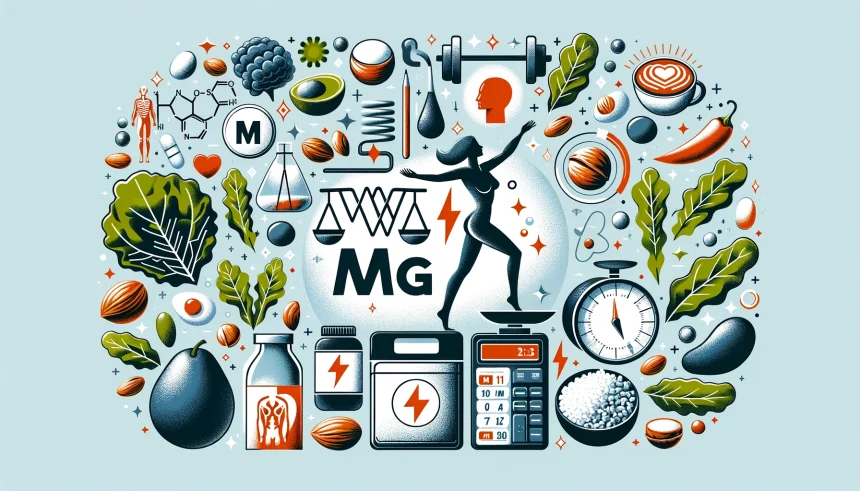When charting a path through the complex terrain of weight loss, magnesium may not immediately emerge as a critical element. Yet, this unsung mineral hero is at the heart of a plethora of physiological processes, many of which subtly but significantly impact weight control and overall vitality. This exploration sheds light on magnesium’s extensive functions within the body, its potential leverage in weight management, and strategic dietary integration to harness its health-promoting powers.
Magnesium’s Vital Functions
Engaged in over 300 enzymatic activities, magnesium’s influence spans muscle and nerve operations, glucose and blood pressure regulation, bone structure integrity, and the synthesis of critical biomolecules like DNA, RNA, and the antioxidant glutathione.
Energizing Effects of Magnesium
Magnesium’s pivotal role in activating adenosine triphosphate (ATP), the cell’s primary energy molecule, underscores its importance in sustaining physical vigor and enhancing exercise efficacy. This boost in energy and performance can catalyze a more dynamic lifestyle, indirectly fueling weight-loss endeavors through extended and intensified physical activities.
Magnesium and Metabolic Health
Magnesium stands at the crossroads of glucose metabolism and insulin action, stabilizing blood sugar and curbing excessive appetite, pivotal in averting overconsumption. Enhanced insulin sensitivity, courtesy of optimal magnesium levels, ensures glucose’s effective utilization, diminishing its conversion to fat, a cornerstone in weight management.
The Calming Capacity of Magnesium
Often overshadowed factors in weight loss, stress, and sleep quality, find an ally in magnesium. Its calming influence mitigates stress and fosters sleep quality, harmonizing hormone levels that dictate hunger signals, thus potentially diminishing unwarranted cravings and intake.
Dietary Routes to Magnesium
Though supplements offer a direct magnesium source, natural dietary incorporation is advocated for its synergistic nutrient profile and reduced risk of mineral imbalances. Magnesium-rich dietary staples include:
- Verdant greens like spinach and kale
- Nut and seed varieties such as almonds and pumpkin seeds
- Whole grains like oats and quinoa
- Leguminous foods including black beans
- Avocados and dark chocolate with a cocoa content of 70% or higher
Dietary Integration and Cautions
Navigating magnesium intake requires mindfulness of the Recommended Dietary Allowance (RDA), which varies across different demographics. Professional consultation is advisable, especially for those with underlying health conditions or on medication, due to potential interactions.
Reflecting on Magnesium’s Weight Loss Nexus
Magnesium’s indirect yet impactful role in weight management underscores its value beyond mere nutritional intake. By bolstering vital body functions, easing stress, enhancing metabolic health, and promoting restorative sleep, magnesium emerges as a key ally in the weight loss journey. Embracing a diet abundant in magnesium-rich foods not only paves the way for achieving weight goals but also fortifies a holistic health framework. As such, when reaching for that next meal or snack, consider the hidden potential of magnesium in steering towards a healthier, more balanced weight journey.








